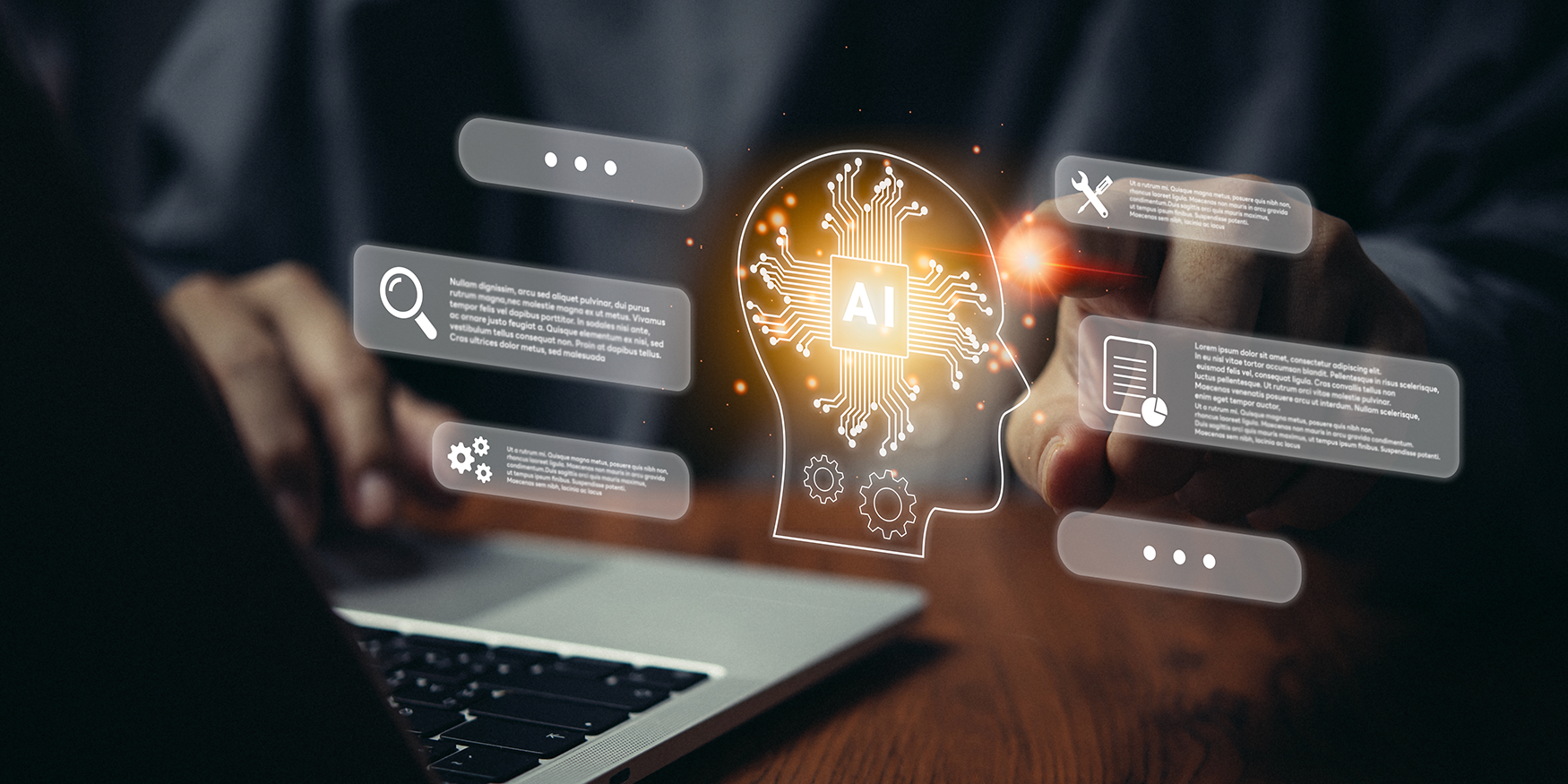
Everything You Need To Know About AI for Marketing in One Blog Article
Artificial intelligence (AI) is in the process of starting to transform nearly every aspect of our lives, and marketing is no exception. In the fast-paced world of digital marketing, AI has emerged as a game-changer, revolutionizing how businesses connect with their target audiences, optimize their campaigns and drive revenue.
In this comprehensive article, we will explore everything you need to know about AI for marketing, from its basic concepts to its practical applications and future trends.
Keep in mind that we are in the early days for AI as it pertains to marketing.
Blake Morgan is a customer experience futurist and author of the book The Customer of the Future: 10 Guiding Principles for Winning Tomorrow’s Business. She wrote: "The future of marketing belongs to those who can harness the power of AI and machine learning to create more meaningful and relevant customer experiences."
Understanding AI in Marketing
Before diving into its applications, let’s start by understanding what AI really is in the context of marketing.
What Is AI?
AI refers to the simulation of human intelligence in machines that are programmed to think and learn like humans. It encompasses a wide range of technologies and techniques, including machine learning (ML), natural language processing (NLP), computer vision and more.
What’s the Difference Between AI, Machine Learning and Deep Learning?
AI is the overarching concept that involves creating intelligent agents. Machine learning is a subset of AI where algorithms are trained to improve their performance on a specific task through experience. Deep learning (DL) is a subset of ML that uses neural networks with multiple layers to analyze and process data.
Potential AI Applications in Marketing
AI in marketing operates by processing vast amounts of data to identify patterns, make predictions and automate tasks. It’s like having a tireless, super-smart assistant that can help with various marketing activities.
Now, let’s explore the numerous ways AI is being used in the world of marketing.
Personalization is one of AI’s most powerful applications in marketing. By analyzing customer data, AI can deliver highly targeted content, product recommendations and advertisements. This not only enhances the customer experience but also boosts conversion rates.
AI-driven chatbots and virtual assistants can engage with customers 24/7, answering questions, resolving issues and even making product recommendations. They provide instant support, improving customer satisfaction and reducing response times.
Predictive analytics with AI can analyze historical data to predict future trends and customer behavior. This allows marketers to make data-driven decisions, optimize campaigns and allocate resources more effectively.
AI-powered tools can generate content, including articles, product descriptions and social media posts. While they may not replace human creativity entirely, they can save time and provide a starting point for content creators.
AI can optimize email marketing campaigns by segmenting audiences, determining the best time to send emails and even generating subject lines that are more likely to get opened.
AI algorithms can analyze user behavior and preferences to deliver highly targeted ads. This not only improves ad relevance but also reduces ad spend by showing ads to users who are more likely to convert.
AI can segment customers based on various factors, such as demographics, behavior and purchase history. This allows marketers to tailor their messaging to different customer groups more effectively.
AI tools can monitor social media platforms for mentions of your brand or products, as well as track sentiment and engagement. This helps in managing your brand’s online reputation and responding to customer feedback.
AI can analyze search engine ranking factors and provide recommendations for improving your website’s visibility in search results. It can also help identify relevant keywords and create content that ranks higher.
With the rise of voice-activated devices, AI helps businesses optimize their content for voice search queries, ensuring they remain competitive in this evolving landscape.
With all these applications, keep in mind AI for marketing is in the early days. None of these applications will solve complex situations for more sophisticated companies.
For example, we’ve experimented with AI for email subject line generation, and while quantity is definitely an outcome (a lot of subject lines in a short amount of time), we’ve found the quality to be a little lacking.
You’ll still need a human being to sort through the output and use it properly. It’s also going to take an experienced person to look at the output from AI and be smart enough to see high-quality, helpful output and the right output vs. simple output.
The Benefits of AI in Marketing
The adoption of AI in marketing brings several notable advantages that are being realized today.
Efficiency and automation are at the top of the list. AI can handle repetitive tasks, such as data analysis and reporting, allowing marketing teams to focus on strategic activities that require creativity and critical thinking. AI can also generate a lot of content, and while it might not all be ready for publication, it can drive efficiency for projects as a jump-start, an outline or even filler content where generic descriptions or explainer content makes sense.
Improved decision-making is also being realized today. AI-driven insights enable data-driven decision-making, leading to more effective marketing strategies and higher return on investment (ROI). Uncovering insights buried in your data has always been challenging, and now it’s less challenging with AI.
An enhanced customer experience means more personalization that improves customer interactions, making them more engaging and satisfying. This is directly linked to generating more leads, more sales opportunities and the ability to quickly turn sales leads into new customer revenue.
Cost reduction is where a lot of people are looking for AI to deliver. AI can optimize ad spending, reduce the need for manual data analysis and minimize errors, ultimately saving businesses money.
Scalability is another potential benefit from AI, although I would caution most of you to recognize that this is one area that I have yet to see come to fruition. Once AI is fully operationalized, it’s possible that you could scale operations easily, making it suitable for businesses of all sizes.
AI Challenges and Considerations
As with all the new tool sets, people are still learning what AI tools can do well and what they can’t do so well.
The collection and use of customer data raises concerns about privacy and ethical use. Marketers must be transparent and compliant with data protection regulations.
Implementing AI solutions can be costly, especially now when people are still learning how and when to use AI. Businesses may need to invest in training and infrastructure with a look to the future, as companies that invest in AI today will be the ones to take advantage of it down the road.
Integrating AI into existing marketing processes and systems can be complex and may require technical expertise. This is where expertise from agencies might be helpful if they have already integrated AI into their service offerings.
AI models require continuous learning and adjustment to remain effective as customer behavior and market trends change. It’s going to be challenging for AI tools to keep up with changing prospect requirements. We already see this – what worked two years ago doesn’t work as well today.
Future Trends in AI for Marketing
The field of AI in marketing is continuously evolving. Here are some future trends to watch for.
AI tools that assist creatives in content generation and design will become more prevalent, bridging the gap between data-driven insights and creative execution. This means you’ll have to balance AI-created content with AI content that is curated and nurtured by humans with content that is 100% created by humans. An effective content marketing strategy has places for all three types of content.
As voice and visual search become more popular, AI will play a crucial role in optimizing content and advertising for these formats. This is already happening. Many more people are finding products and services on social media through AI-powered content server algorithms than in traditional searches on Google. This means you might want to rethink your reluctance to use digital ads on social even if you’re at a B2B business.
AI will continue to refine personalization, creating hyper-personalized marketing experiences that cater to individual preferences and behaviors. The more personalized, the more effective the marketing. Being able to personalize down to the issue level is going to be a big part of how AI helps marketers in the future.
AI has revolutionized marketing by enabling businesses to analyze vast amounts of data, personalize experiences and automate tasks.
From predictive analytics to chatbots and content generation, AI is a versatile tool that offers significant benefits for marketers. However, it also comes with challenges related to data privacy, initial investment and integration.
As the field continues to evolve, staying up to date with AI trends and best practices will be essential for marketing success in the digital age. Embracing AI strategically can lead to more efficient and effective marketing campaigns, ultimately driving business growth and customer satisfaction.

CEO and Chief Revenue Scientist
Mike Lieberman, CEO and Chief Revenue Scientist
Eliminate Hit-or-Miss Marketing Moves
Get advice, tips, tools and guidance to generate more leads for your company in this weekly email newsletter.



Eliminate Hit-or-Miss Marketing Moves
Get advice, tips, tools and guidance to generate more leads for your company in this weekly email newsletter.














